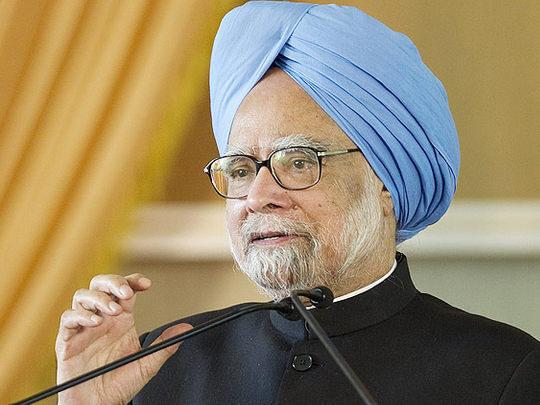
Several months after the tumultuous uprising in Cairo's Tahrir Square which resulted in the ouster of the long-serving President Hosni Mubarak, the scale and significance of the protesters' accomplishment continues to amaze. Ordinary people — unemployed, angry — felt victimised by a slow-moving, bureaucratic government, resolved to bring it down and succeeded.
Unlike Egypt, India has a proliferation of political parties and leaders. We have large corporations and trade bodies, various religious and regional interest groups that all clamour vociferously for their interests. In short, we are a loud, chaotic democracy, which former US ambassador to India John K. Galbraith affectionately called, ‘functioning anarchy'.
But despite our democratic credentials, India is today the land of not one but a million Mubaraks. It is a country hostage to the important and the powerful — from leading politicians and senior bureaucrats to corporate tycoons and power brokers. The average citizen seems merely a powerless inhabitant in a self-serving oligarchy. We tolerate billion-dollar scams and continue to vote corrupt politicians into power partly because there's not much we can do.
Corruption, over the years, has reached comical proportions. The Commonwealth Games controversy has been overtaken by the even more spectacular 2G scam — for which the loss to the Indian exchequer is estimated at 1.76 trillion rupees! (around $40 billion) The poorest Indians cannot earn even Rs176 a day. Even as the CBI and the courts take up the matter, Indians seem to be losing regard not just for their politicians but for themselves as well. There is a cynical, partisan angle to every viewpoint and argument which threatens the very spirit of parliamentary democracy.
Failing the people
Meanwhile, inflation — at more than 9 per cent — is emerging as a major problem while food-price inflation — at almost 20 per cent — is crippling the common man. The economy is being further strained with a slowdown in manufacturing growth and a drop in foreign investment. Furthermore, almost one-third of the country is now held hostage by extreme left-wing Maoist violence.
To say the government is failing the people would be an understatement. But surprisingly, unlike their Egyptian counterparts, the common men and women of India do not seem to have considered the possibility of revolt. Given the daily struggle of India's underclass, the plunder of their natural habitats and resources as well as the scale and prevalence of corruption, it amazes me that ordinary people do not put aside their differences to jointly protest the rapaciousness of state-level bureaucrats, the atrocities of village police chiefs, the brazen corruption of junior ministers?
Mass street rallies and protests — organised by the people themselves — to demand the ouster of corrupt leaders is unheard of. Most will agree that it can only happen in dramatic Indian movies. In real life, it is almost impossible to even contemplate. The only exceptions in memory are the protests against the imposition of Hindi in Tamil Nadu in the 1960s (which often turned violent) and the rally of Indian youth during the Jayaprakash Narayan movement in the 1970s, which never really accomplished much. But if the scale of support for anti-corruption activists such as Anna Hazare and Baba Ramdev is any indication, there is real, burning anger in India today. The government has so far been reluctant to take a bold stand and show that it is serious about tackling graft. But it would be unwise to wait out this period and hope that the anger will cool down. Voters are making a mental note of the excesses of the United Progressive Alliance (UPA) government and will act accordingly in the next general elections in 2014. The Bharatiya Janata Party, expecting such a windfall, already seems more upbeat and active.
Prime Minister Manmohan Singh needs to engage parliament for a serious debate on the subject of corruption and the special ombudsman, or Lokpal Bill that has been proposed. He needs to involve all parliamentarians in the discussions by convening an all-party meet. The Congress and the UPA government will need to act now and take a bold, tough stance against corruption even if it means sacrificing a few of their own politicians. This is the only way for them to save themselves in the next elections. So far, the government seems to be positioned against the activist team of Anna Hazare. They are bitterly trying to stave off a tough, powerful ombudsman bill and are trying to appease the public with a bill that has no fangs. But remember, although Baba Ramdev's methods might be questionable, him and Hazare have managed to rally mass public opinion against the UPA government on the issue of corruption.
The UPA government — and its hundreds of Mubaraks — would be wise to learn a lesson or two from the happenings in Tahrir Square. There is only so long that people will be patient, willing to negotiate and propose laws. When anger boils over, New Delhi's parliament buildings might look similar to Tahrir Square.
Rakesh Mani is an Indian writer.











